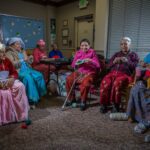The purpose of this study was to analyze the effects of a multiple-family group in increasing access to mental health services for refugees with posttraumatic stress disorder (PTSD). This study investigated a nine-session multiple-family group called Coffee and Families Education and Support with refugee families from Bosnia-Herzegovina in Chicago. Adults with PTSD and their families were randomly assigned to receive either the intervention or a control condition. The results indicated that a multiple-family group was effective in increasing access to mental health services and that depression and family comfort with discussing trauma mediated the intervention effect. Further well-designed studies of family interventions are needed for developing evidence-based interventions for refugee families.
Diversity initiatives in the US workplace: A brief history, their intended and unintended consequences
Diversity initiatives are designed to help workers from disadvantaged backgrounds achieve equitable opportunities and outcomes in organizations. However, these programs are often ineffective. To better

